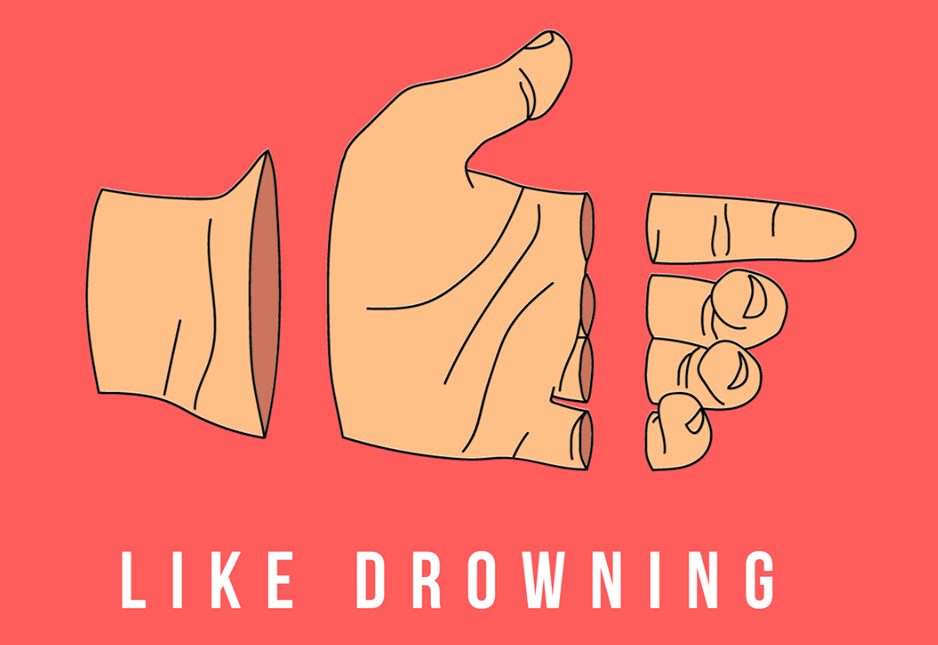“E and V are women, or so they think.” So that’s the one concrete fact of the show out the window. The University of Edinburgh’s alternative theatre group Theatre Paradok perform their absurdist show Like Drowning, hoping to touch on themes of identity and inequality.
The scene is set with two girls dressed in white (Anna Phillips and Grace Dickson), apparently talking to each other whilst facing the audience. They play with the possibilities of the black studio space and the ignorance of their audience; flitting in between meeting for the first time and being well acquainted. The question of where they are is never satisfactorily answered; the waiting room of a doctor’s office, a psychiatric ward, a chat forum. They go round in circles (“What’s your favourite animal?” “Blue” “Me too!”), even flitting between loving and hating each other, but it is never explained why. Written down it sounds theatrically romantic. In reality, it is just pretty frustrating.
Like Drowning is at its strongest when the cast get a chance to show their acting ability, particularly Phillips and Dickson. They deliver heartfelt, if repetitive, monologues on love, betrayal and loneliness. They are poetically written too, and the audience can only hope for similar content to follow. Instead, it is utterly shambolic. Other characters – dressed like they just stepped out of the Mystery Machine – enter, complain about love, then exit. Their skits are usually nonsensical, particularly one in which “Father Turd” (played by James Sullivan) is restrained like a vicious dog examining his dinner (the audience). Some come close to making sense, like a scene of a feminist (Hannah Churchill) arguing with her off-stage partner, but the point they are trying to make is never clear. Even so, the bizarre performances they give are expressive and forceful.
Audiences should come to expect that from absurdist theatre, but Like Drowning doesn’t even have the pointless and chaotic nature of life to fall back on thematically. Without seeing the blurb of the show in advance, you could be forgiven for thinking that this show had no themes whatsoever, aside from those raised in the monologues. It is difficult to see how the unpleasant mess on stage could have any meaning or significance to anyone other than the performers. It ends up just being challenging for the sake of being challenging.
